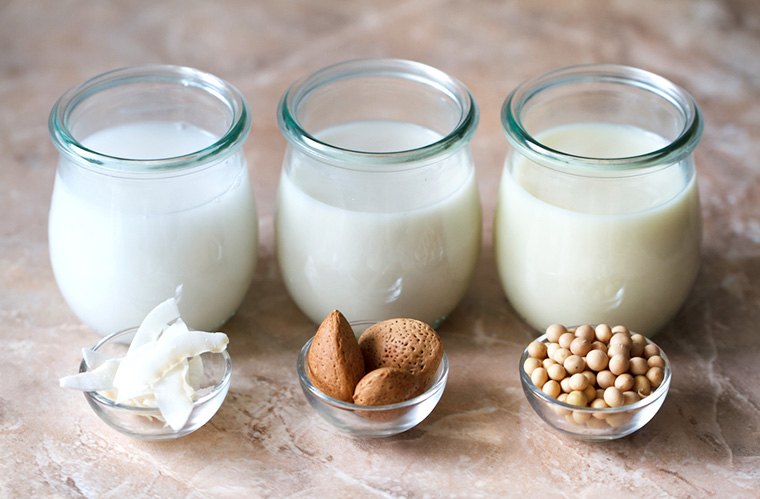Beverages made from plants have been around for centuries. You will find a long history of plant milks and other plant drinks made by different cultures across the world and there is certainly nothing new or unusual when it comes to consuming them.
People choose plant milks over dairy milk for a variety of reasons. Vegans and lactose intolerants might be the biggest supporters of plant-based products, but recently earth-conscious individuals are ditching diary for sustainable alternatives. But are they more sustainable than cow’s milk?
Turns out, most non-dairy milks come out better than cow’s milk when you look at their carbon emissions, how much land they take up and how much water they use.
In a 2018 study, Joseph Poore, a researcher at the University of Oxford, looked at the environmental footprint of some food and drink. Later he extended the analysis to include plant-based milks, looking at the impact of soy, oat, rice, and almond milk on the environment. He found that all of those plant milks fared better than cow’s milk.
In terms of carbon emissions, almond, oat, soy, and rice milk are all responsible for around a third or less of the emissions dairy milk puts out, with almonds the lowest of the bunch at 0.7kg per litre, followed by oat (0.9kg), soy (1kg), then rice (1.2kg). Dairy milk is responsible for 3.2kg of emissions per litre of milk.
Land use shows an even more dramatic split, with nine square metres of land needed to produce just a litre of dairy milk, compared with less than a one square metre for plant-based milks, ranging from 0.3 sq m for rice milk to 0.8 sq m for oat milk.
Of course, there are individual variations within each of these averages.
Long story short: If your diet is well-balanced, and you just want a really good flat white that hasn’t seen the inside of a cow and won’t break the planet, it’s fine go for whichever one you prefer – safe in the knowledge that, environmentally-speaking, whatever you choose will have less of an impact on the planet than dairy.




